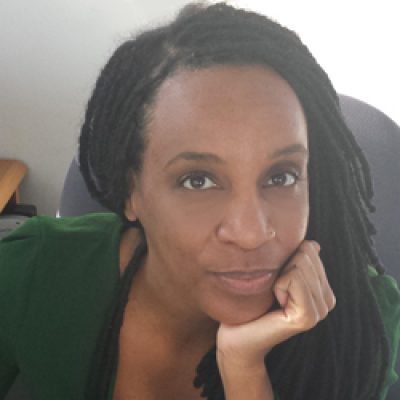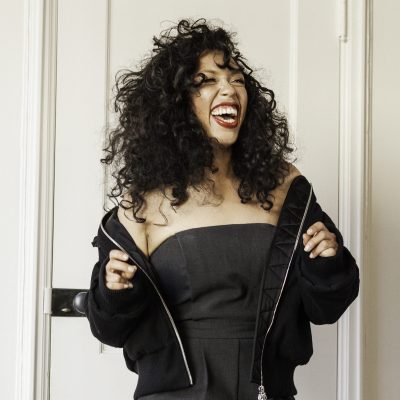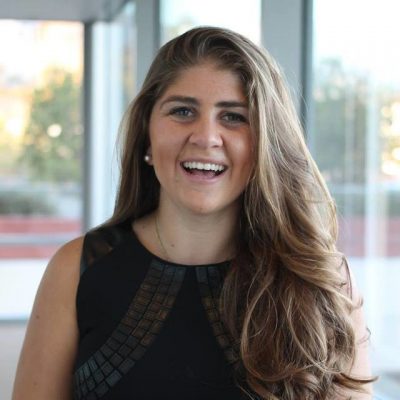Article
Aasha Abdill believes that knowledge and truth are derived within the dialogues between diverse worldviews, and this belief permeates through her work. Growing up in Brooklyn, her world existed within the five-block radius around the public houses where she lived. As she continued on to pursue college and postgraduate degrees at Spelman College and Columbia University, and then a doctorate in sociology at Princeton, Aasha saw firsthand how every researcher—despite aiming to reduce their biases—was influenced by where they came from including their personal and cultural experiences.
“Too often people believe that good ideas are unidirectional; flowing from the educated to the uneducated, from the rich to the poor, from the developed to the developing. But good ideas are bidirectional.”
Her Humanity in Action path has fostered her belief in the importance of providing spaces for diverse individuals with many passions and priorities to interact in an inclusive and equitable environment. Troublingly, Aasha saw how the lack of racial and ethnic diversity in the social science doctoral ranks influenced the patterns of what gets studied, how it gets studied, who gets published, and how the research insights from scholars of non-white backgrounds were less supported or put under higher scrutiny for bias particularly if they studied social phenomenon occurring in their own communities. This led her to become passionate about “working towards a society where minority experiences are valued and included in the construction of knowledge because a society’s scholarship greatly influences philanthropic funding, government policy and media portrayals that can help or hurt a community’s progress.”
#fatheringfrom
Aasha recently published a book and website on fatherhood in the black community titled Fathering from the Margins, which grapples with topics at the intersection of race, class, culture, and gender. True to her mission to bridge the often disconnected worlds of research, practice, and communities, Aasha decided to launch a corresponding campaign called #fatheringfrom. The #fatheringfrom campaign breaks down facts and insights that redress enduring racist narratives about black fathers being deadbeats into simple, engaging social media memes to advance the dialogue on black families. Aasha sees it as her duty to use her research findings to improve the public policies and social services impacting the black community, which is still dealing with the negative impact of biased scholarly depictions about their family structures and experiences.
“I still feel lucky for the Fellowship experience and the larger network I continue to actively engage in as a way to stay intellectually stimulated and personally inspired.”
Spending a month in three cities across Europe and the United States as a Diversity & Diplomacy Fellow, Humanity in Action Aasha’s first travel experience to Europe. It connected her with a network that continually re-energizes her through their collective passion. However, she also learned from her Fellowship experience that in order to continue to fight for justice and equity, we must also be good at healing ourselves. She said: “Find a way to make sure that the injustices you fight against, and may at times internalize, do not eat you up inside. We have work to do, but we also have a life to live and enjoy.”
Aasha is a 2021 – 2022 Racial Equity Grant recipient. The Racial Equity Grant, launched in Summer of 2020, is a 10-month grant which provides support to Humanity in Action Fellows and Senior Fellows as they defend racial equity and the #BlackLivesMatter movement through their projects. Generously funded by William H. Donner, it provides for dynamic civic action, critical social change and transformative promise as it relates to reckoning of past and present racial injustices. For more information on the grantees click here.
Updated February 2022
More from Aasha Abdill
-
Announcing the recipients of the 2021 Racial Equity Grant
We are delighted to announce the recipients of the 2021 Humanity in Action Racial Equity Grant! Senior Fellows Aasha Abdill, Alexandria Dyer, Caroline James, Chelsea Halstead, Katie Hahn, and Michelle Lo will receive grants to create new initiatives or further their existing projects that focus on racial justice in the US.
-
Newsmatch: A Unique Program to Fund News "For the People, With the People"
Senior Fellow Aasha Abdill writes about the importance of news and local journalism, and how the nonprofit news is suffering and people are losing local news sources that help them make important decisions.
-
Senior Fellow's work on black fatherhood honored by The New Press for Juneteenth
Senior Fellow Aasha Abdill's book "Fathering from the Margins: An Intimate Examination of Black Fatherhood" was highlighted by The New Press, a public-interest publisher, in celebration of Juneteenth.
-
Thank you to our 2016 US Review and Admissions Committees
Humanity in Action received 513 applications for our Fellowships in Europe and Atlanta this year, as well as 165 applications for the Diplomacy and Diversity Fellowship.
-
The Keyser Söze of Fathering from the Margins
In an article published by Medium, Senior Fellow Aasha Abdil writes on the connections of Black Lives Matters and her research of black fathering.
-
Announcing the 2015 Diplomacy and Diversity Fellows
-
Shifting Paradigms: Humanity in Action Senior Fellows on Policy and Pluralism Across Borders
Shifting Paradigms is a volume of diverse articles on cross-border policy and pluralism written by Humanity in Action Senior Fellows.
-
When Diversity Is A Given And Not The Goal: Inclusive Interactions Among A Culturally Diverse Group
-
2nd German-American-Israeli Comparative Social Cohesion Forum "Between Cohesion and Coercion"
Senior Fellows and Board members of Humanity in Action represented the US cohort at the 2nd German-American-Israeli Comparative Social Cohesion Forum "Between Cohesion and Coercion", which took place in Nazareth.







